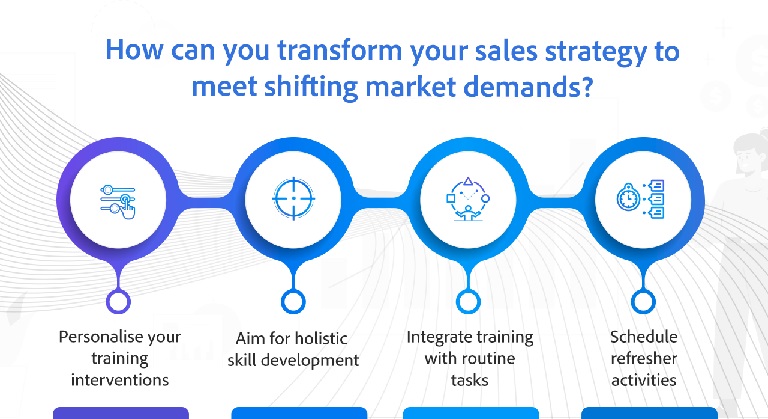Key Takeaways
- Understanding the connection between sales training and performance enhancement.
- Exploring innovative training techniques for today’s market.
- Identifying metrics to measure sales training effectiveness.
- Integrating technology into sales training for maximum impact.
In today’s highly competitive sales landscape, sharp techniques and cutting-edge knowledge are vital for a sales professional’s arsenal. The key to acquiring these assets is targeted and thorough training, such as comprehensive new home sales consultant training. Such training ensures the adoption of proven strategies and underlines the importance of continuous learning for driving sales performance and adapting to industry fluctuations.
The Role of Continuous Learning in Sales Success
Continuous learning provides the groundwork for a solid sales career. As market conditions change and new trends emerge, a dedication to lifelong learning ensures that sales professionals are not left behind. By fostering a culture that values ongoing education, a sales team is better equipped to handle new challenges and engage with modern consumers more effectively, thus leading to increased sales figures and enhanced job satisfaction among team members.
Customized Training: Tailoring Programs to Fit Team Needs
When developing a sales team, generic training programs may not effectively address the diverse needs of each team member. For maximum impact, a tailored program that considers individual skills, experience levels, and the goals of the sales organization is crucial. Such specific focus on the team ensures that each member gets the support they need to strengthen their abilities and, as a result, contribute more significantly to the team’s overall success.
Real-Life Applications: Case Studies in Sales Training
There needs to be a teacher-like experience, and real-life case studies are powerful tools for conveying the practical benefits of comprehensive sales training. These success stories from organizations that invested in training provide insights into strategies that lead to tangible results, such as increased sales, higher customer retention, and enhanced team morale. Learning from these real-world examples allows sales teams to emulate successful tactics and foresee potential challenges.
Measurable Outcomes: Evaluating Training Program Effectiveness
Evaluating the effectiveness of a sales training program is more than just a formality; it’s about making sure that the time and resources put into it result in tangible business benefits. By clearly defining what success means – increased conversion rates, bigger deals, or improved customer relationships – organizations can have solid proof of a program’s worth. Establishing KPIs and regular check-ins, as recommended by thought leaders such as the Harvard Business Review, is a strategic approach to measuring and refining training processes.
Embracing Technology: Digital Tools for Sales Enablement
Technology advancements have revolutionized the sales field, giving rise to digital tools that facilitate sales activities, from lead generation to deal closure. Incorporating these tools into sales training—CRM software, sales automation tools, and data analytics platforms—empowers sales reps to work smarter and sell more effectively. Training with these technological assets can dramatically transform a sales team’s operation, allowing for streamlined workflows and more personalized customer engagement.
Social Selling: Training Salespeople for the Digital Age
Sales and social media are increasingly intertwined, with platforms like LinkedIn, Twitter, and Facebook opening new pathways for customer engagement. Social selling is an indispensable skill for the modern salesperson, as it allows them to build and maintain relationships with prospects in the digital space. Practical sales training now requires a component that targets these skills, teaching sales professionals how to use these platforms. Industry leaders reinforce this narrative; as highlighted by Forbes, social selling strategies are critical in today’s selling environment.
Mindset Shift: Developing a Growth Mentality in Sales Teams
Sales training is not solely about imparting knowledge and skills; it’s also about fostering the right mindset. A growth mentality instills resilience and a commitment to continuous improvement. This mindset encourages sales teams to face challenges head-on, learn from failures, and remain agile in a constantly evolving industry. Incorporating mindset training into professional development can have far-reaching effects on individual performance and the broader culture of a sales organization.
Conclusion: Sustaining Success Through Ongoing Education
The top-performing sales organizations understand that training isn’t a one-and-done event but a continuous journey. Through regular updates to training modules and a culture that celebrates learning, sales teams can sustain their growth and performance over the long term. Sustained success comes from a commitment to learning, evolving, and striving for excellence. By doing so, sales professionals ensure that their skills remain relevant and their strategies align with best practices.
Read More: Money.rumusrumus.com: Discover Smart Money Management Strategies



